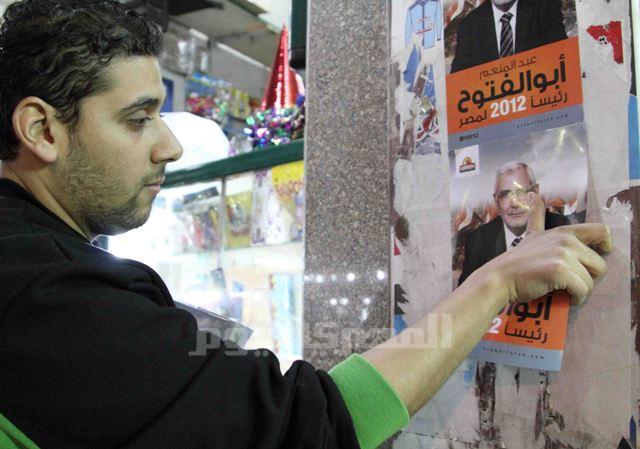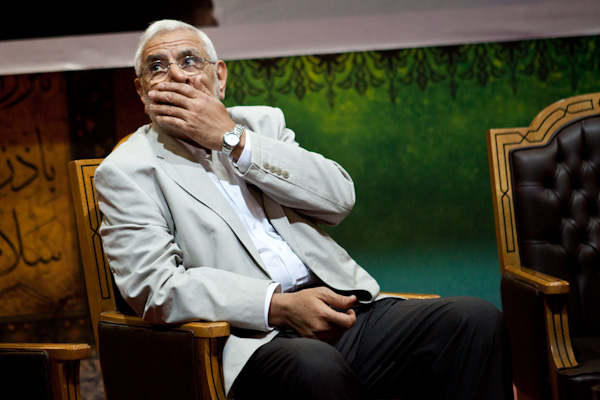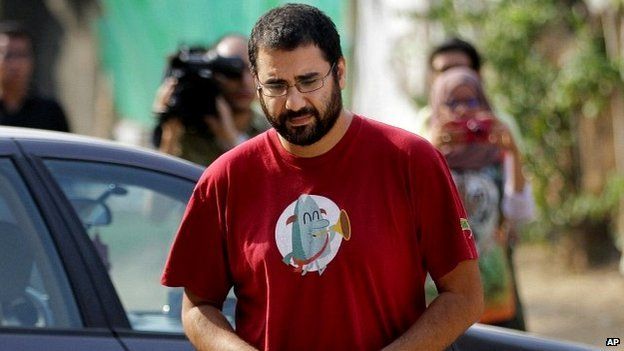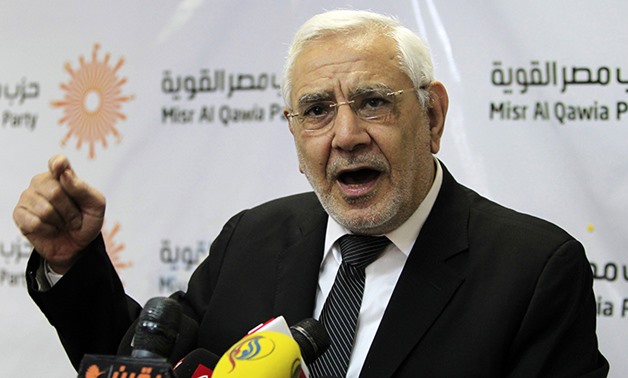
Egypt is a massive living organism — a web of ticking clocks, each set to a slightly different millisecond. With approximately 80 million in the country, 18 million of whom are woven into the streets and buildings of Cairo, the traffic of the city may crawl but many would say it is only by the will of God that it continues to flow at all. People are everywhere — driving, jumping off buses, walking, bicycling… ticking minute by minute through the days and nights of the city. Doctors, valets, belly dancers and beggars… Cairo keeps 18 million cogs in one of the world’s busiest wheels. This series takes a magnifying glass to one person, a representative of a job that keeps the city ticking — an eye-level shot that takes you through a day in the life of a cog in the wheel of Cairo.
Nevine El Shabrawy
“Really? You want to follow me around?” Ramy Rizk asks, skeptically. “Why? I only do this for a few hours, and it’s not very interesting.” But before the end of the day, Rizk will have become a victim of a robbery, besides almost being dragged into a fistfight.
Ramy Rizk’s working hours as a political campaigner are brief, and punctuated by other obligations, mainly to his college classes. On this particular day he has less time than usual, given the afternoon study session he plans on attending. Final exams are coming up and Rizk, in his third year as a pharmacology major, is as anxious as the rest of the nation’s students. But it’s an altogether different kind of anxiety that has motivated him to trade study hall in for the streets.
“I believe in what I’m doing,” says Rizk, as he spreads another layer of poster glue across Abdel Moneim Abouel Fotouh’s face. “And I believe this will benefit the country. That he will benefit the country,” he says, pointing to his preferred presidential candidate’s soggy visage.
Surprisingly — given his volunteer work and the previous statement — Rizk has “never been even remotely interested in politics,” and even now insists that hasn’t changed. “This is not about politics,” he states, between posters. “This is about being an Egyptian. Right now our country is in a precarious position. If you’re not doing all you can to make things better, than you’re not a true Egyptian.”
For Rizk, as well as Moussa and Hossam, his fellow students and campaigners, doing all they can includes helping the former Muslim Brotherhood member become the next president of Egypt. The decision is not an arbitrary one, and bristled by the mere suggestion of it, Rizk goes off on a list of reasons as to why he has aligned himself with the Abouel Fotouh movement. With each given reason, Moussa and Hossam nod in silent agreement.
Despite their initial suspicion — all three insisted on being given fake names and refused to have their university identified — there’s no shortage of optimism around the team of campaigners, even when they realize their bucket of glue has been snatched from right behind their, as well as this reporter’s, backs. Rizk orders Moussa to run back to campus for another container, and when he returns, the group promptly goes back to work, and the friendly banter that carries them through it. Even the mention of their candidate’s rivals isn’t enough to bring them down, with the only break in their positive outlook appearing during a debate regarding the Muslim Brotherhood’s runner, Mohamed Morsy. “Just you wait,” Moussa says as he looks down the street, considering their past hour’s work with a thin smile. “Tomorrow the whole city will be covered with Morsy, and all our work will have been for nothing.” The other two quickly negate this, with Rizk going as far as announcing that Morsy “doesn’t stand a chance; you’d be surprised.”
Throughout the day, the trio makes steady progress down Qasr al-Aini, discussing topics as disparate as music, soccer, and of course, their finals. Unless provoked, they rarely ever talk about the work they’re doing, or matters related to it, and when asked how it feels to be freely posting political propaganda around the city with no fear of consequence, the answer comes without hesitation; it’s a development they’ve all reflected on before.
“Good,” is the shared response, with Rizk elaborating, “It seems like a step forward, sure. But we also can’t fool ourselves into thinking democracy is just about having a choice of more than one person for president.”
“This isn’t anything special,” Hossam says, referring to the upcoming election, or rather, the opportunity to cast a free vote. “We should have been here a long time ago.”
As the three work on reducing the fresh stack of posters given to them earlier in the day by the manager of their university’s Abouel Fotouh campaign (an independent, student-formed group) they’re the frequent targets of a wide range of inquiries, and as much support as hostility.
“For the most part, we put up our posters on walls that don’t surround any private property, and we make sure to avoid storefronts and windows,” says Rizk. “But sometimes people will still yell at us, and tell us we can’t put or posters up here, even when they clearly don’t own the property.”
“But we try to be as considerate as possible,” he says.
A few minutes later, Rizk is trying to convince Egypt Independent that the twin Abouel Fotouhs pasted over a row of waving Hazem Salah Abu Ismails was “an accident.” Not wanting to tear down their own posters and risk making a mess on a hospital exterior, the trio decides to tidy things up by covering any sign of the excluded Salafi candidate altogether.
“We have nothing against Hazem, but he’s out of the race anyway, so we might as well put his slogan to good use,” shrugs Rizk.
“‘We will live with dignity,’” Moussa reads aloud the phrase bleeding through one of Abouel Fotouh’s cheeks. “That’s nice.”
A few hours later, Hazem strikes back. Shortly after returning to their campaign work following a break for class, Rizk’s teammates save him from getting into a punch-up with a belligerent Abu Ismail fan. The provoker had caught the trio off guard; firstly, as later stated by Rizk, “by being young, in raggedy [sweat] pants, and unbearded,” and secondly, by walking past and offering a “God bless,” and a thumbs up, before a few paces later adding, “But it’ll go to Hazem, God willing.”
“Yeah, if God lets him back in the race,” Rizk replied with a laugh.
To which the Abu Ismail supporter responded with a remark about our mothers, mine presumably included, and Abouel Fotouh’s as well. Rizk lets his brush drop, and chases the young man down. In a few moments, he's being held back by his friends, and Egypt Independent. There is some shouting, and it ends.
“There was no way that guy was a Hazem supporter,” Rizk huffs later, straightening his shirt. “He was crazy.”
Moussa makes the obvious joke, everyone laughs, and the trio gets back to work.
Beyond that, it’s an uneventful day and shortly afterward the group disbands, having pasted a little less than 100 posters over the past several hours. Rizk is already running late for a study session, and he’s not sure when he’ll be able to commit more time to Abouel Fotouh. It may not be his job, but it’s something he’s keen to do when he can.
“I want to be a part of this in a way that goes beyond just demanding change,” he explains. “I want to participate in the shaping of things to come.”



